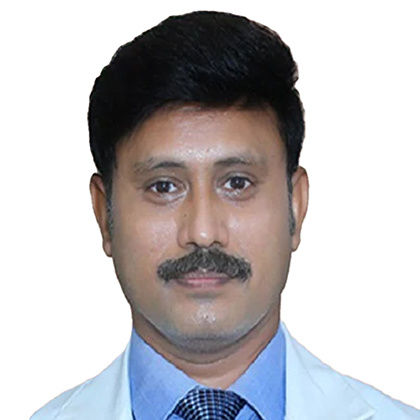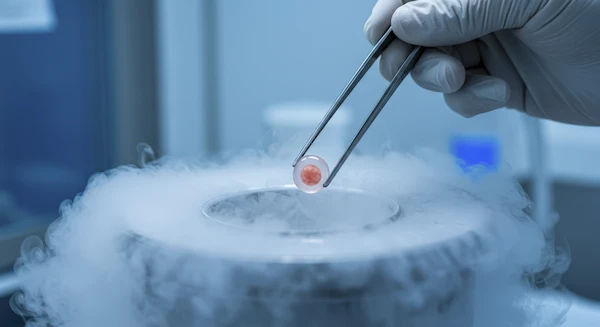Cluster Headaches: Overview of Causes and Treatment
Know about cluster headaches, their symptoms, causes, diagnosis and treatment. Learn about how it affects the health and when to see the doctor, and more.

Written by Dr. Siri Nallapu
Reviewed by Dr. Rohinipriyanka Pondugula MBBS
Last updated on 31st Aug, 2025

Introduction
Headaches are common, but cluster headaches are a rare and extremely painful type that can disrupt daily life. If you or someone you know suffers from these intense headaches, understanding their causes and treatment options can help manage the condition effectively.
What Are Cluster Headaches?
Cluster headaches are severe, one-sided headaches that occur in cyclical patterns, known as "clusters." They are often described as one of the most painful types of headaches. Unlike migraines, which can last for hours or days, cluster headaches are shorter but much more intense.
Key Features of Cluster Headaches:
The key features include:
• Excruciating pain (often around or behind one eye).
• Occur in clusters—daily attacks for weeks or months, followed by remission periods.
• Short duration (15 minutes to 3 hours per episode).
• Associated symptoms like red or watery eyes, nasal congestion, or drooping eyelids on the affected side.
Consult a Neurology Doctor for Personalised Advice
What Causes Cluster Headaches?
The exact cause of cluster headaches is still unclear, but research suggests they may be linked to abnormalities in the hypothalamus (a part of the brain that regulates biological rhythms). Some possible triggers include:
• Alcohol consumption (especially during a cluster period).
• Strong smells (like perfumes or gasoline).
• Smoking or exposure to smoke.
• Changes in sleep patterns.
• High altitudes (due to oxygen level changes).
Unlike migraines, cluster headaches are not usually triggered by stress or food.
How Do Cluster Headaches Affect Health?
Cluster headaches can significantly impact quality of life due to:
• Severe pain that makes it hard to function.
• Sleep disturbances (attacks often occur at night).
• Emotional distress (anxiety or depression from frequent pain).
Because of their intensity, many people mistake them for migraines or sinus headaches. Getting an accurate diagnosis is crucial for proper treatment.
How Are Cluster Headaches Treated?
While there is no cure for cluster headaches, treatments can help reduce the frequency and intensity of attacks.
1. Acute Treatments (For Immediate Relief)
• Oxygen therapy – Breathing pure oxygen through a mask can relieve pain within minutes.
• Triptan injections (like sumatriptan) – Fast-acting medications that help stop an attack.
• Nasal sprays (lidocaine) – Can numb the pain pathway.
2. Preventive Treatments (To Reduce Frequency)
• Calcium channel blockers (verapamil) – Commonly prescribed to prevent attacks.
• Corticosteroids – Used for short-term relief during severe clusters.
• Nerve blocks – Injections to numb specific nerves.
3. Lifestyle and Home Remedies
• Avoid alcohol and smoking during cluster periods.
• Maintain a regular sleep schedule.
• Exercise regularly (moderate activity may help).
• Apply a cold compress to the painful area.
When to See a Doctor?
If you experience:
• Sudden, severe headaches unlike any you’ve had before.
• Headaches that worsen over time.
• Headaches with fever, confusion, or vision changes.
Final Thoughts
Cluster headaches are painful and disruptive, but with the right treatment, their impact can be minimised. Understanding triggers, seeking medical help, and following a structured treatment plan can make a big difference. If you or a loved one experiences these headaches, reach out to a healthcare provider for support.
Consult a Neurology Doctor for Personalised Advice
Consult a Neurology Doctor for Personalised Advice

Dr. Amit Kapoor
Neurosurgeon
18 Years • D.N.B NeuroSurg.
Delhi
Apollo Hospitals Indraprastha, Delhi

Dr. Prabash P R
Neurologist
16 Years • MBBS, MD, DM
Chennai
Apollo Speciality Hospitals Vanagaram, Chennai
(75+ Patients)

Dr Debnath Dwaipayan
Neurosurgeon
9 Years • MBBS, MS(Gen. Surgery), DrNB (Neurosurgery)
Delhi
Apollo Hospitals Indraprastha, Delhi

Dr. Meghna Pawar
Neurologist
8 Years • MBBS, MD, DrNB NEUROLOGY
Bhopal
Apollo Sage Hospitals, Bhopal

Dr. Mutiki Ramesh Babu
Neurologist
7 Years • MD, DNB
Visakhapatnam
Apollo Hospital Visakhapatanam, Visakhapatnam
(100+ Patients)
Consult a Neurology Doctor for Personalised Advice

Dr. Amit Kapoor
Neurosurgeon
18 Years • D.N.B NeuroSurg.
Delhi
Apollo Hospitals Indraprastha, Delhi

Dr. Prabash P R
Neurologist
16 Years • MBBS, MD, DM
Chennai
Apollo Speciality Hospitals Vanagaram, Chennai
(75+ Patients)

Dr Debnath Dwaipayan
Neurosurgeon
9 Years • MBBS, MS(Gen. Surgery), DrNB (Neurosurgery)
Delhi
Apollo Hospitals Indraprastha, Delhi

Dr. Meghna Pawar
Neurologist
8 Years • MBBS, MD, DrNB NEUROLOGY
Bhopal
Apollo Sage Hospitals, Bhopal

Dr. Mutiki Ramesh Babu
Neurologist
7 Years • MD, DNB
Visakhapatnam
Apollo Hospital Visakhapatanam, Visakhapatnam
(100+ Patients)




